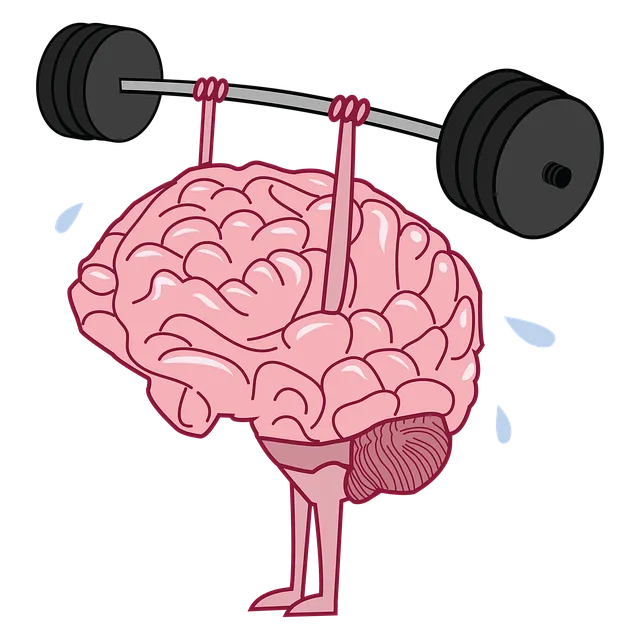Mental health hotlines in Boulder offer 24/7 crisis support, destigmatizing mental illness and filling gaps left by limited therapy access. Trained counselors provide immediate assistance and resources for long-term well-being. Boulder's Kaiser therapists, known for diverse skill sets and stigma reduction efforts, offer comprehensive care, but individual experiences may vary; research is advised to find the best fit. Accessing hotlines and online tools provides immediate help, proactive self-care fosters mental health.
In today’s fast-paced world, mental health crisis hotline support services are more crucial than ever. This comprehensive guide delves into the effectiveness of these lifeline resources, focusing on key aspects like understanding crisis hotlines, the identity of responders, unique therapeutic approaches, and local availability in Boulder. We also explore Kaiser’s notable therapy methods and investigate whether their professionals meet high standards. By the end, readers will have a clear path to accessing support, equipped with knowledge about Boulder’s mental health resources and Kaiser’s reputation for quality care.
- Understanding Mental Health Crisis Hotlines
- Who Answers These Calls: Therapists or Trained Professionals?
- Kaiser's Approach to Therapy: What Makes It Unique?
- Boulder's Mental Health Resources: Are They Effective?
- Accessing Support: A Step-by-Step Guide
Understanding Mental Health Crisis Hotlines

Mental health crisis hotline support services are a critical component of public awareness campaigns aimed at destigmatizing mental illness and fostering self-care practices. These hotlines, often accessible 24/7, provide immediate assistance to individuals experiencing acute emotional distress or a mental health crisis. They serve as a safety net for those who might not have easy access to therapy or are facing barriers such as cost or availability, especially in areas like Boulder where Kaiser’s therapist quality is renowned but not universally guaranteed.
Hotline counselors are trained professionals equipped with skills in risk assessment for mental health professionals, enabling them to offer guidance tailored to the caller’s needs. Whether it’s a public awareness campaign that encourages individuals to reach out or personal self-care practices promoted by these services, hotlines play a vital role in ensuring people have access to immediate support and, subsequently, the resources needed for long-term mental well-being.
Who Answers These Calls: Therapists or Trained Professionals?

When individuals reach out to mental health crisis hotline support services, they often wonder who will be on the other end of the line. In many cases, these calls are answered by trained professionals rather than therapists. This is not necessarily a reflection of a lower quality service; instead, it ensures that a wide range of qualified experts can provide assistance. Trained counselors, social workers, and psychologists are equipped to handle various mental health concerns, offering immediate support and guidance.
Boulder-based organizations, such as Kaiser, are renowned for their comprehensive mental health services, including a strong team of therapists. However, the professionals who answer these hotline calls undergo specialized training in crisis intervention, enabling them to assess situations effectively and connect individuals with appropriate resources or direct them towards self-care practices. This approach focuses on inner strength development and can be especially beneficial in promoting long-term mental wellness coaching programs.
Kaiser's Approach to Therapy: What Makes It Unique?

Boulder residents seeking mental health support have access to Kaiser’s unique approach to therapy, known for its comprehensive and effective treatment methods. What sets Kaiser apart is their commitment to integrating various therapeutic modalities tailored to individual needs. Therapists at Kaiser are trained in diverse practices, ensuring a personalized experience. This includes evidence-based techniques like cognitive-behavioral therapy (CBT), mindfulness, and sometimes even creative arts therapies, making it an attractive option for those wondering, “Does Kaiser have good therapists?”
The organization’s focus extends beyond individual treatment to community outreach and mental health education programs design. They actively promote burnout prevention through workshops and resources, addressing a growing concern in today’s fast-paced society. By combining these strategies with their dedicated therapist network, Kaiser creates a supportive environment, fostering not just recovery but also long-term mental well-being.
Boulder's Mental Health Resources: Are They Effective?

Boulder’s mental health resources have gained significant attention for their comprehensive approach to supporting residents’ mental wellness. Among these, the availability of therapists within the Kaiser network has been a topic of interest for many. The question arises: Are Kaiser’s therapists in Boulder effective?
The effectiveness of therapeutic services depends on various factors, including therapist expertise and the individual’s personal connection with their provider. Kaiser Boulder is known for its diverse range of mental health professionals who specialize in treating various conditions. Their accessibility and reputation suggest a commitment to reducing the mental illness stigma through quality care. Moreover, focusing on self-esteem improvement and other aspects of mental wellness is integral to their treatment modalities. However, individual experiences may vary, and it’s advisable for those seeking support to research therapists and find the best fit for their unique needs.
Accessing Support: A Step-by-Step Guide

Accessing support for mental health crises doesn’t have to be a daunting task. Here’s a step-by-step guide to help you navigate your way to assistance, ensuring you receive the care you need. Start by recognizing when you or someone else is experiencing a crisis; this could be characterized by intense emotions, thoughts of self-harm, or severe distress. Next, reach out for immediate help by dialing a mental health hotline—a free and confidential service available 24/7. In Boulder, Kaiser offers robust support with experienced therapists who can provide guidance and assessment.
For more tailored assistance, explore online resources and mental wellness podcasts that offer valuable insights and coping strategies. Additionally, consider enrolling in mental wellness coaching programs or healthcare provider cultural competency training to gain specialized knowledge and skills. Remember, seeking help is a proactive step towards managing your mental health and well-being.
Mental health crisis hotline support services play a vital role in communities like Boulder, offering immediate assistance and guidance during challenging times. In understanding these resources and recognizing the importance of trained professionals, such as those at Kaiser, we can ensure that individuals in crisis receive the highest quality care. While Boulder’s mental health resources have their merits, continued evaluation and access to innovative approaches, like Kaiser’s unique therapy model, are essential to effectively meeting the needs of those facing mental health crises. By following a step-by-step guide for accessing support, individuals can take proactive measures towards healing and recovery.






